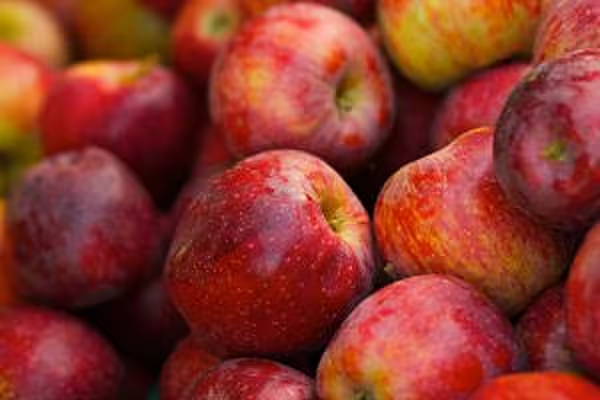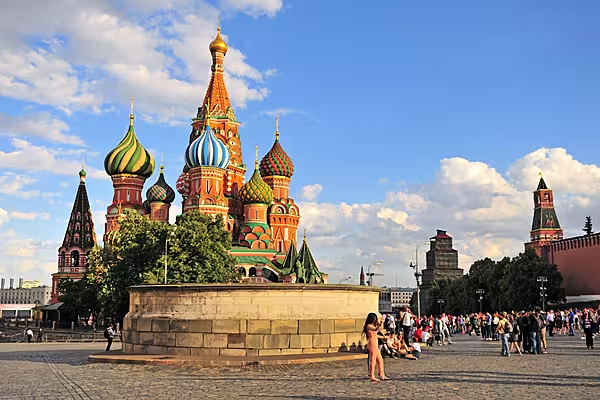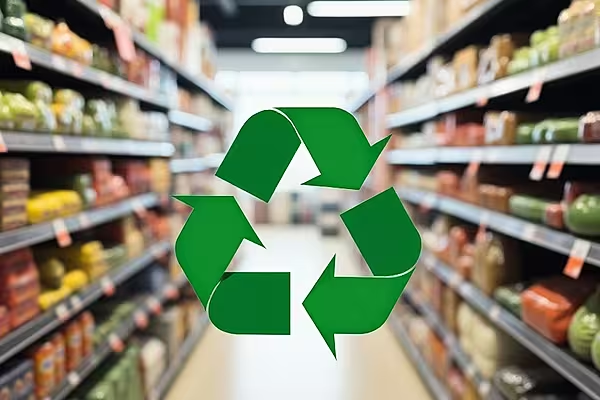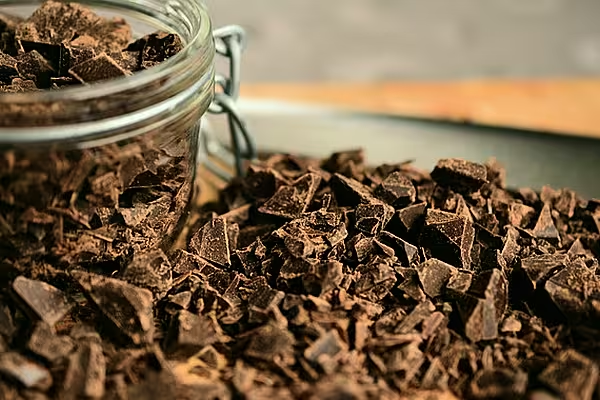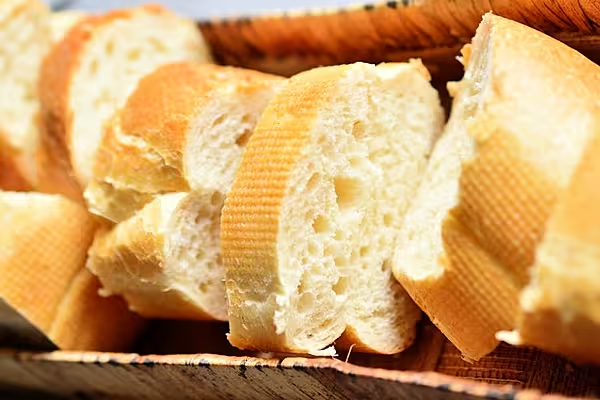Russia's ban on Polish apple imports isn't going to be taken lying down. Faced with losing the country’s largest market, some of Poland's biggest newspapers are urging citizens to eat more fruit and drink more cider.
Poland is the world’s top apple exporter and growers are among the most affected by Russia’s ban on an array of food products from the European Union, US and other countries that supported sanctions against it over the conflict in Ukraine.
Waging Financial War
Celebrities, politicians and journalists are taking to social media, posting apple-biting selfies on Facebook or Twitter under hashtags #jedzjablka, or #eatapples, after calls from Puls Biznesu, a local business daily, to “stand up to Putin, eat apples and drink cider.” The European Commission has announced support measures of €125 million for fruit and vegetable producers, including apple growers.
“We are not pleased about the embargo,” said Natalia Skubisz, who estimates that two-thirds of the apples exported from her family’s orchards in Dziuchow, 85 kilometers from the Ukrainian border, went to eastern markets including Russia and Ukraine. “It will most definitely affect fruit prices and our profits.”
Fruit Exports
EU exports of apples, pears and quinces to Russia last year were valued at €523 million, with €272 million of the produce coming from Poland, according to the European Commission. There are more than 60,000 apple farmers in the country, the Polish Fruit Growers Association estimates.
Poland is seeking to sell more produce to the US to help ease the burden of excess supplies. The US buys more than 30 types of fruit and vegetables from Poland and is reviewing a request by ambassador Ryszard Schnepf to open the market for apples, the US Department of Agriculture said in an e-mailed statement.
Apple Surplus
As the absence of Russian customers leaves a surplus of apples on Poland’s domestic market, producers are trying to convert more drinkers to cider.
Cider accounted for less than 1 per cent of the country’s alcohol sales last year, even after almost tripling to about 2 million litres from 2012. Poles guzzled 3.7 billion litres of beer and 264.3 million litres of vodka in 2013, according to the International Wine & Spirit Research in London.
The country’s cider production will surge fivefold this year to exceed 10 million litres, according to the Warsaw-based Polish Council of Winemaking.
Still, demand won’t be enough to make up for the lost Russian market. The Brussels-based World Apple and Pear Association estimates that Poland will produce 3.5 million tons of apples this year. One litre of cider uses 1.5 kilograms to 2 kilograms of apples, Tomasz Porowski, owner of cider company Cydr Ignacow’s said. That means cider makers may consume about 15,000 tons, or less than 1 per cent of the country’s output, based on the Polish Council of Winemaking estimates.
Most Polish apples are dessert varieties and not as suitable for cider as sour and bitter types, according to Porowski. Larger-scale producers may be less picky and use concentrate made of other apple varieties instead.
Demand for the beverage has been increasing in recent years after the government lowered taxes on production and new support for the industry may help boost consumption further, said Porowski.
Ambra SA, Poland’s biggest cider maker, sold 800,000 litres last year. Bank Millennium SA in a July report forecast the company’s sales to reach 4 million to 4.5 million litres in 2014.
“Spain is the land of wine, not grapes. Poland can be the land of cider,” said Robert Ogor, chairman of Ambra. “The ‘eat apples’ campaign shows we’ve got the social support to invest in cider. The embargo is a chance and an impetus for the development of Polish agriculture.”
Poland’s Agriculture Minister Marek Sawicki asked the finance ministry for a temporary suspension of the tax on cider production, Puls Biznesu reported. The Economy Ministry proposed that cider should be exempt from restrictions on alcohol advertising in order to boost demand for apples.
Vodka ‘Passé’
“I hope the embargo will serve the Polish apple growers well, meaning they will diversify their sales,” Porowski said. “It would be great if they weren’t so addicted to Russia. Russia will always be a moody customer.”
While many Poles historically associated cider with a cheap fruit wine known derogatorily as “jabol,” that connotation is becoming weaker, especially to younger drinkers, Agata Andrzejczak, an analyst at the London-based IWSR, said.
“Vodka is really passé,” Andrzejczak said. “Young people are walking out on vodka. The cider consumer base is still small so there is further room for growth. If you see the press scream about drinking it, then a lot of people will wonder what it’s all about.”
Bloomberg News, edited by ESM
